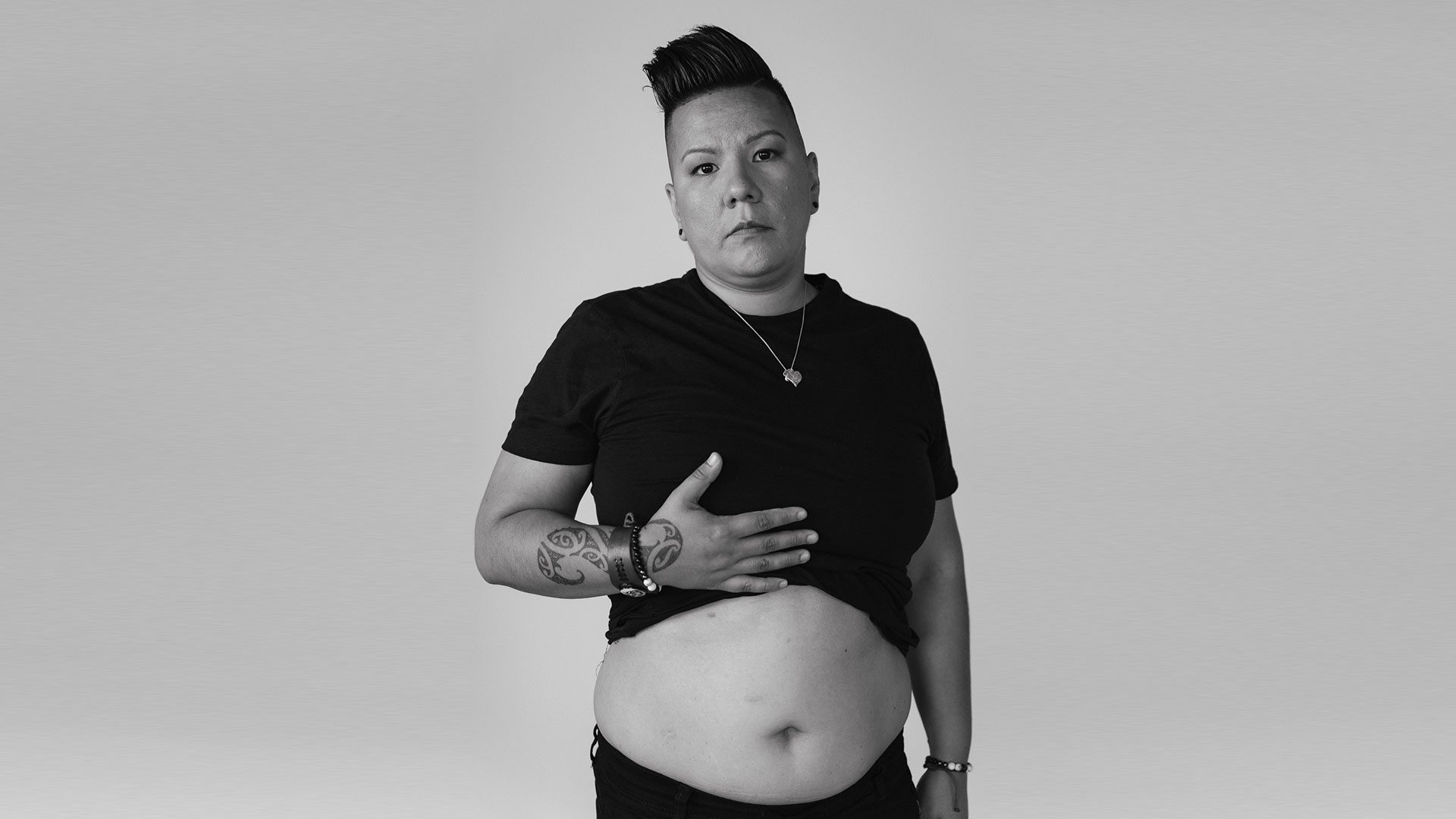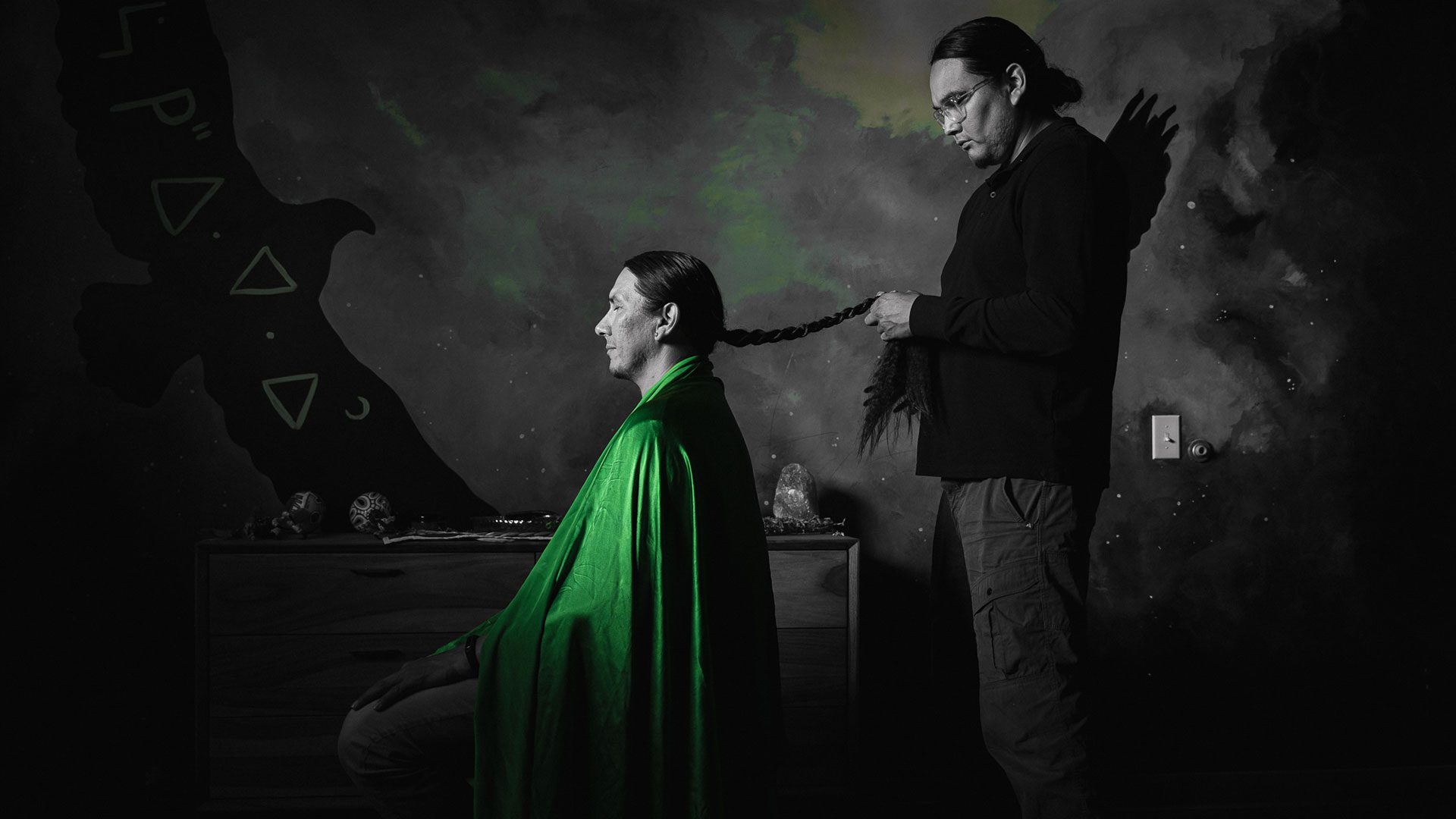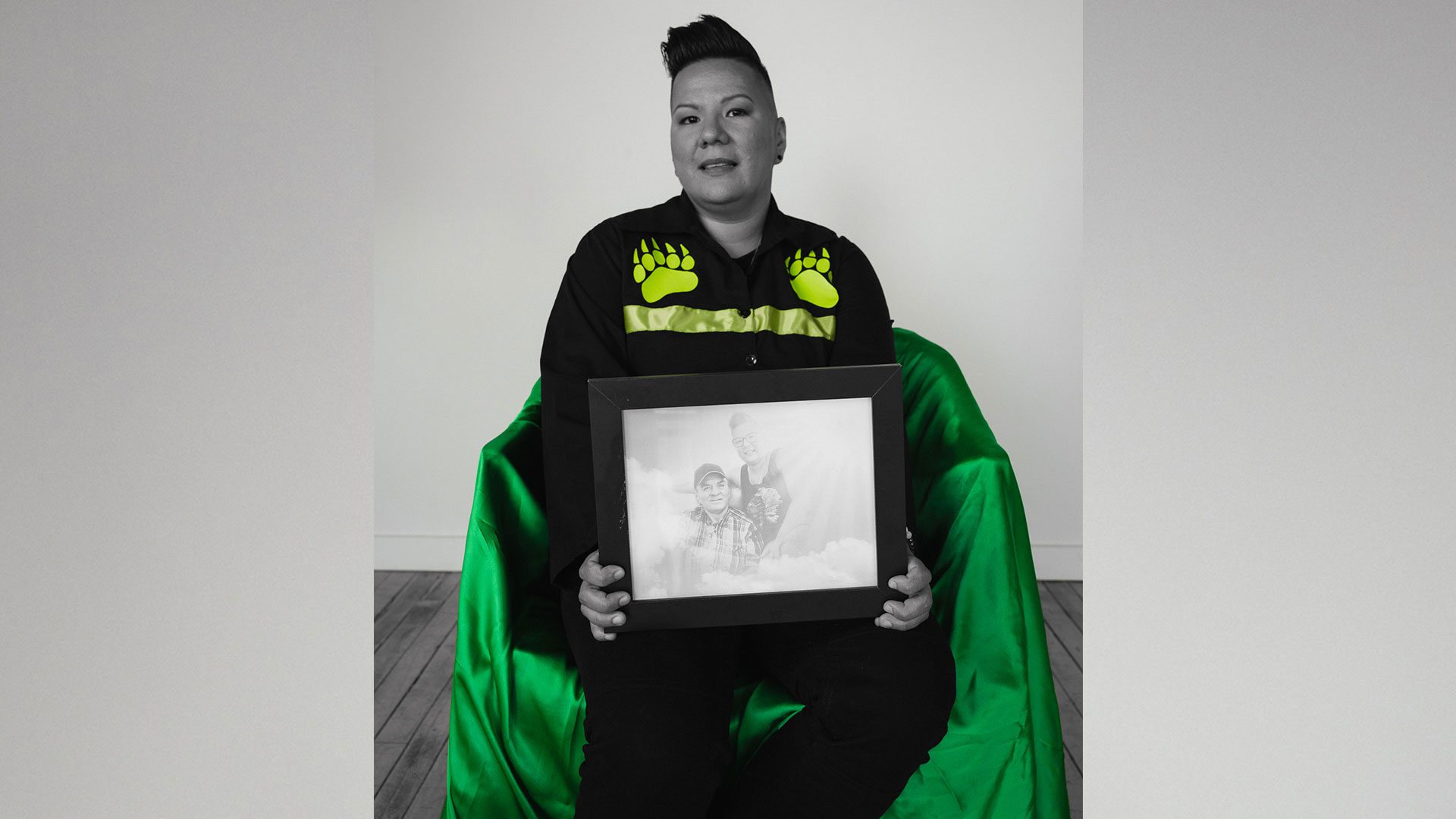
Vanessa Tait donated one of her kidneys to her dad, Kenneth Tait. Photo: Kevin Settee
When Vanessa Tait’s dad needed a healthy kidney, she didn’t hesitate.
She saw a way to improve his life and get him back on the land he was missing.
“I had to give a piece of myself to get my dad home,” she said Tuesday during the launch of a campaign to promote living organ donation.
“His kidneys had failed.”
The campaign, called Great Actions Leave a Mark, features two First Nations families from Manitoba. It was started by University Hospital Network’s Ajmera Transplant Centre in Toronto and the Centre for Living Organ Donation.

Tait, of O-Pipon-Na-Piwin Cree Nation in Manitoba’s far north, said her dad Kenneth Tait’s kidney failed due to complications from Type 2 Diabetes. He was facing the rest of his life on dialysis.
Giving him one of her kidneys in 2020 was much quicker than waiting for a donation from a non-living donor.
In fact, that’s the point of the campaign. To create awareness about living donation by a relative, friend or stranger whose blood and tissue types match the recipient.
“All he wanted was a pair of hiking boots,” said Kevin Settee of his older brother, Craig Settee, after donating a kidney to him in 2012.
“It’s our 10-year anniversary this week.”

Kevin discovered he had kidney disease when he was 10, after noticing blood in his urine.
“It was scary. My dad took me to the doctor, then it was the hospital and lots of tests.”
Without a transplant, Kevin doesn’t know if he’d be alive today. He says his brother’s gift made it possible to get off dialysis and do so many things, including becoming a father of two.
“I try not to take life for granted,” Kevin said in an interview, “to support my family, take care of my community and just live life happy.”
The brothers from Fisher River Cree Nation, about 200 km north of Winnipeg, are featured shirtless in photos and videos Kevin took for the campaign to show off their surgical scars.
“I try to do something for (Craig) every year,” said Kevin, a Winnipeg-based filmmaker and photographer.
“He runs marathons, so I’m thinking of running a half marathon for him or with him.”

Kevin and his brother, along with Vanessa and her father, are two of 60 living pairs to “go through the donation journey in Manitoba,” said Candice Coghlan, education and outreach coordinator at the Centre for Living Organ Donation.
The centre doesn’t know how many First Nations, Inuit and Métis patients have received organ donations, but is committed to gathering more specific statistics going forward, Coghlan added.
Dr. Leroy Storsley, who looks after donors at Winnipeg’s Health Sciences Centre, says donating an organ is a special gift – and a commitment.
“From start to finish it can take close to a year for someone to donate. Of course, that varies depending on the donor’s health and if they’re not a direct match.
“Obviously, we want to encourage donation,” Storsley added, “but we also want to be cautious. It’s major surgery and there’s some reduction in kidney function long term.”

Watching her father struggle on dialysis was difficult for Vanessa, who was 37 when she donated a kidney. She said her blood and tissue types matched perfectly.
But it wasn’t smooth sailing.
Kenneth spent a year in a hotel room in Winnipeg and missed his home and family and being on the land. It was stressful for him yet necessary because the preparation and surgical readiness occurred at HSC, Vanessa said.
“First Nations have reduced access to medical care. There is a 12-hour drive between our community and the city,” she added.
“We don’t have doctors, there is one nurse, and home dialysis is tricky without dependable water and electricity. His home needed work to accommodate his condition.”

Kenneth died nine months after receiving Vanessa’s kidney.
While it was shorter than she liked, Vanessa said she has good memories such as how much Kenneth relished being free of the dialysis machine.
“The goal was reached,” she said. “And my dad gave me an important assignment.
“He told me to share our story to help others.”










